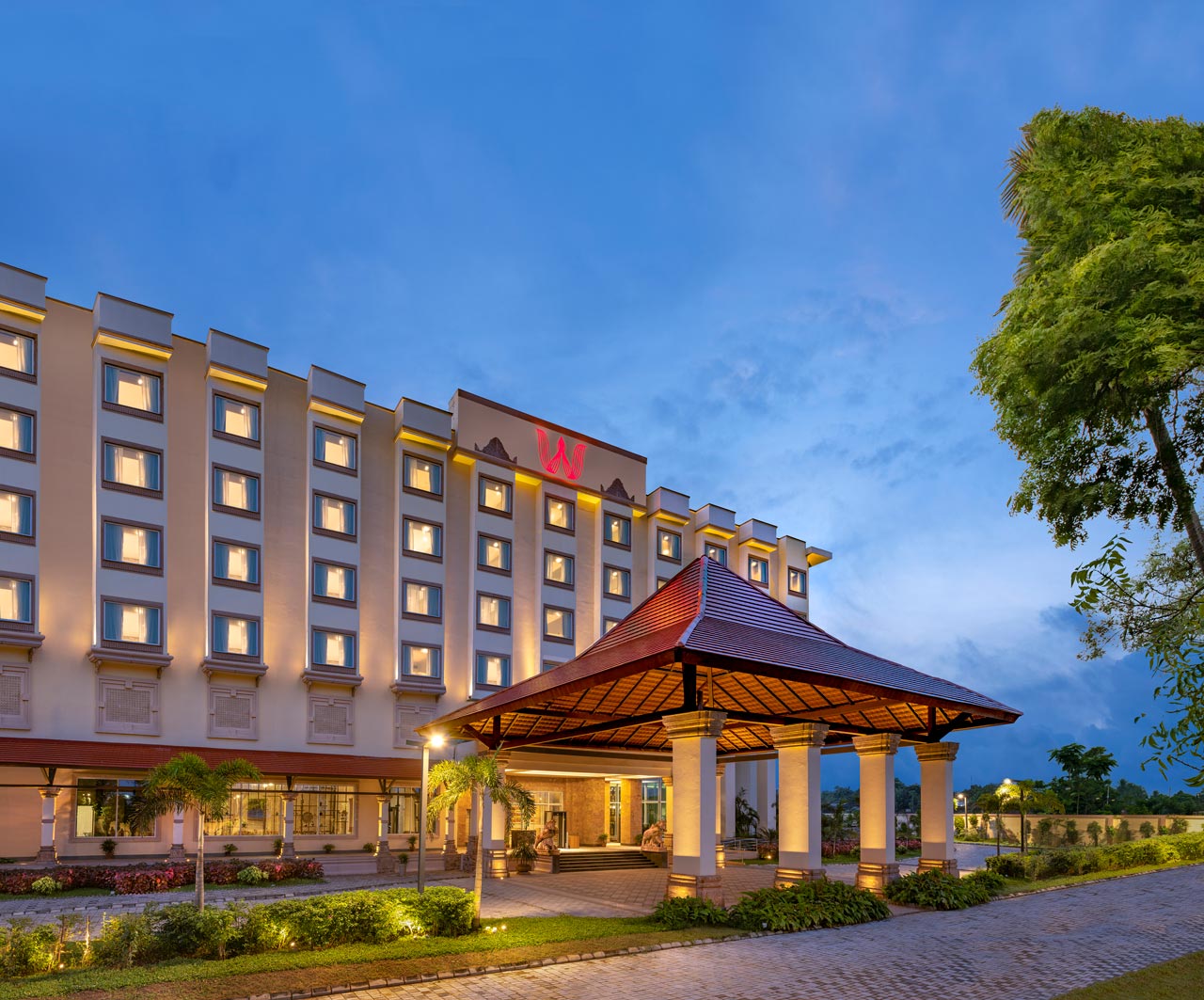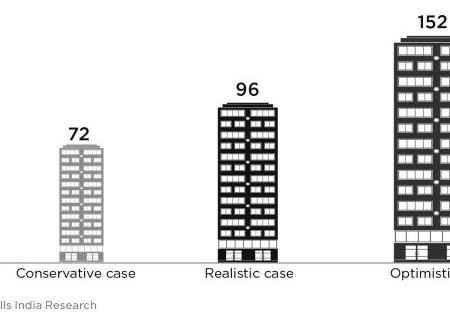Luxury Lodging Goes Green
Feb 17, 2022

Your author (SSP) speaks with P. Gopalakrishnan (PG), GBCI India managing director, Southeast Asia and the Middle East, about the selection parameters for VT in the hospitality industry and the significance of LEED certification for hotels.
SSP: What is the significance and scope of vertical transportation (VT) in the hospitality sector?
PG: Elevators and escalators within the hospitality sector are important in elevating the overall patron experience. Elevators are a key facilitator of smooth and seamless transitions at hotels. They provide guests with an easy, safe, comfortable experience. It is important for hotels to monitor how well their elevators are functioning, because they are usually located in the heart of the hotel — the lobby — where guests get their first impression of the property. Lobby elevators also provide guests access to various zones of the hotel.
SSP: What are the deciding factors in selecting elevators for hotels?
PG: Hotel elevators must be both responsive and safe. Hence, carrying out regular inspections and upgrades are of prime importance. Further, there is a growing demand for hotels and other properties to be more sustainable and energy-efficient. Because of this, efficient elevators that reduce overall energy consumption are gaining preference. New technologies and best practices involving motors, regenerative drives, control software, optimized counterweights and efficient cabin lighting have resulted in significant energy savings. While safety is paramount when planning an elevator system, a good installation should also focus on aesthetics. Aesthetics must be in harmony with the overall design and décor of the building, with sustainability at the core.
SSP: What is the importance of the U.S. Green Building Council’s Leadership in Energy and Environmental Design (LEED) Platinum certification, and which prerequisites must a hospitality brand meet to receive it?
PG: LEED is the most widely used rating system in the world, with nearly 106,000 registered and certified commercial projects and nearly 2 million registered and certified residential units across 181 countries and territories. Today, India remains the fourth-largest market in the world for LEED, and we are seeing projects in every sector in the country implement the rating system. This includes hospitality establishments. LEED is a very holistic rating system. Projects pursuing LEED earn points across nine credit categories. These are:
- Integrative process
- Location and transportation
- Sustainability of the site
- Water efficiency
- Energy and atmosphere
- Materials and resources
- Indoor environmental quality
- Innovation
- Regional priority
LEED certification is an internationally recognized symbol of sustainability excellence. Hospitality spaces that choose to implement it can demonstrate the implementation of ecofriendly and sustainable methods of running their businesses, as well as their commitment to the health and safety of their customers and employees.
SSP: Do you feel the focus on sustainability and green initiatives gives further impetus to premium established brands like ITC and inspires other brands (including those in the residential, commercial, hospitality and other segments)?
PG: Green Business Certification Inc. India (GBCI) has certified several hotel properties in India under the LEED rating system. ITC Hotels has certified its entire luxury chain to LEED Platinum, the highest level of certification, proving that green building and hospitality can, indeed, go hand-in-hand.
Welcomhotel by ITC is a stellar example of how hospitality can make a positive global impact by committing to sustainability and green initiatives. Welcomhotel’s sustainable practices and focus on green initiatives have contributed to its distinction of becoming the first hotel in Bhubaneshwar to be LEED Platinum-certified. This is a testimony to the zeal of ITC in encouraging responsible luxury across its properties. We are truly proud of ITC Welcomhotel and are confident that its stakeholders will reap the tangible socioeconomic benefits brought about by its LEED certification.
Through rigorous certification and credentialing standards, GBCI is driving the adoption of green building practices that foster global competitiveness and enhance environmental performance and human health. The hotel business is shifting to sustainable resources, assessing the indoor environment for health risks and prioritizing green construction. Consistent metrics and standards to support the quality of products delivered by the hospitality industry will become even more crucial for a range of stakeholders, including owners, investors and operators. Green building approaches must be incorporated into the design, construction and daily operations of hotels and can be an important component of a company’s commitment to sustainability.
Welcomhotel Becomes State’s First LEED Platinum-Certified Hotel
ITC’s Welcomhotel Bhubaneshwar, inaugurated by Naveen Patnaik, chief minister of Odisha, has become the state’s first LEED Platinum-certified hotel. With 107 rooms and eight suites, the five-star property reflects ITC’s commitment to offering sustainable hospitality to its guests. The property is a visual ode to the city’s 5,000 majestic temples. It is served by a total of four Otis elevators — two for guests and two service units — traveling at up to 1.7 m/s. The hotel received an overall score of 82 points enroute to securing its LEED Platinum certification from GBCI. Among the green and sustainable features deployed at Welcomhotel are electric vehicle-charging stations, located across 5% of the total available parking space. The hotel also installed low-flow water fixtures that can reduce water consumption by 48%. ITC Ltd. Executive Director Nakul Anand said:
“ITC Hotels’ growth story is rooted in sustainability. We strongly believe that sustainable luxury is the way forward and strive to offer this to our patrons at all our properties. It is our constant endeavor to provide our customers with the best comfort and luxury layered in sustainability, which ultimately reflects their own drive to achieve a green lifestyle.”
About GBCI India and Regional Director P. Gopalakrishnan
GBCI
GBCI is the premier organization independently recognizing excellence in green business industry performance and practice globally. Established in 2008, GBCI exclusively administers project certifications and professional credentials and certificates within the framework of the U.S. Green Building Council’s Leadership in Energy and Environmental Design (LEED) green building rating systems, as well as the PEER standard for power systems, the WELL Building Standard, the Sustainable SITES Initiative, EDGE (Excellence in Design for Greater Efficiencies), TRUE Certification for Zero Waste, the Investor Confidence Project (ICP) for energy efficiency retrofits and RELi for resilient design.
GBCI India was incorporated in 2016 to facilitate the global growth of its sustainability programs and provide on-the-ground support to the project teams and professionals advancing LEED in the region. The more than 50 technical experts and professionals who make up GBCI India’s core team bring years of subject matter expertise and come from diverse backgrounds. All share a passion for and commitment to being part of the sustainable transformation of the real estate and construction sectors in India.

P. Gopalakrishnan
As regional director of GBCI India, P. Gopalakrishnan manages business and market development of LEED and other GBCI rating systems for the Southeast Asia and Middle East regions. His expertise includes corporate strategy, international market expansion, branding and business unit creation. An alumnus of the College of Engineering, Guindy, and the Indian Institute of Management-Kolkata, Gopalakrishnan has more than 20 years of corporate experience in Southeast Asia and the Middle East.
Get more of Elevator World. Sign up for our free e-newsletter.








